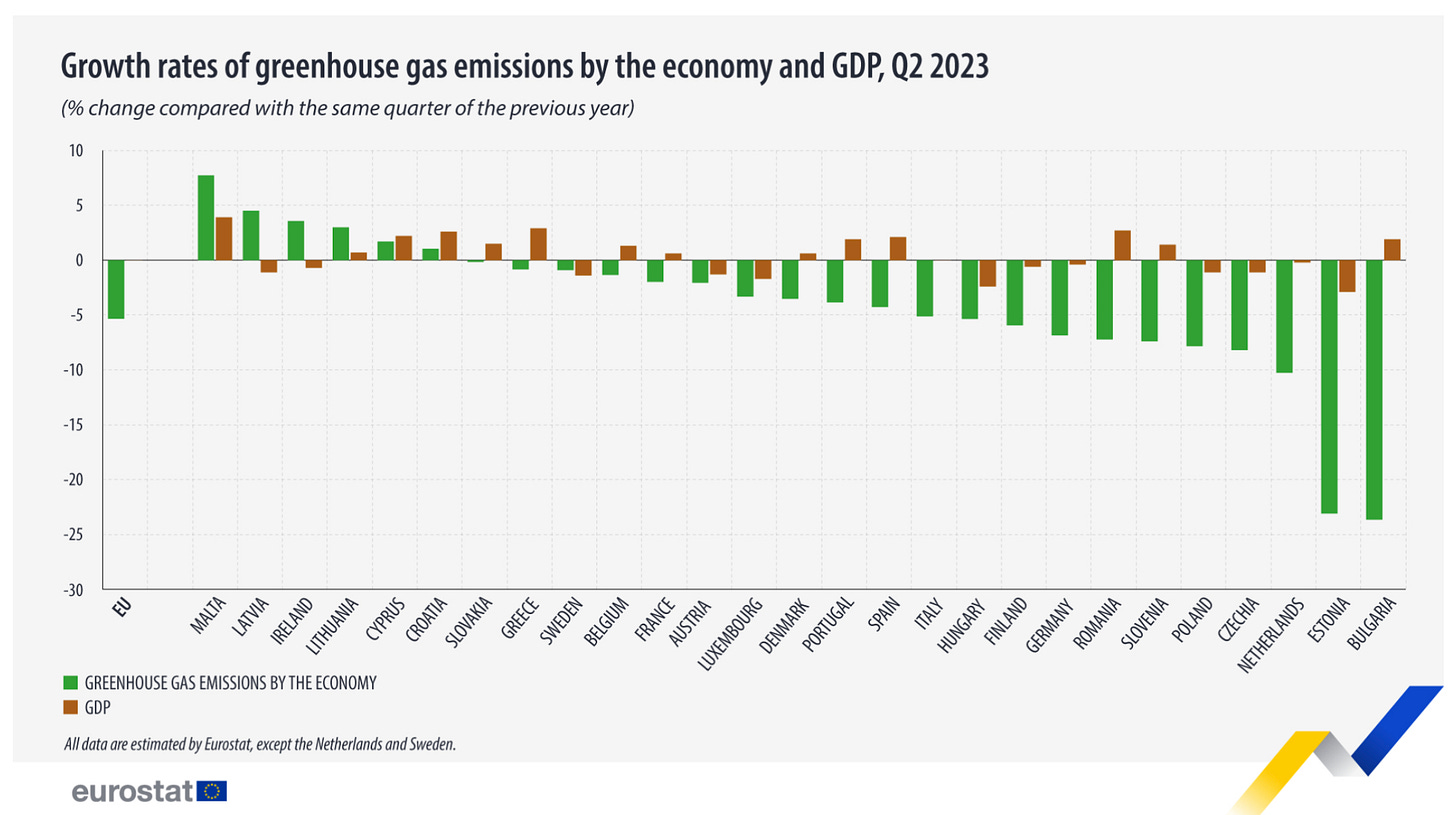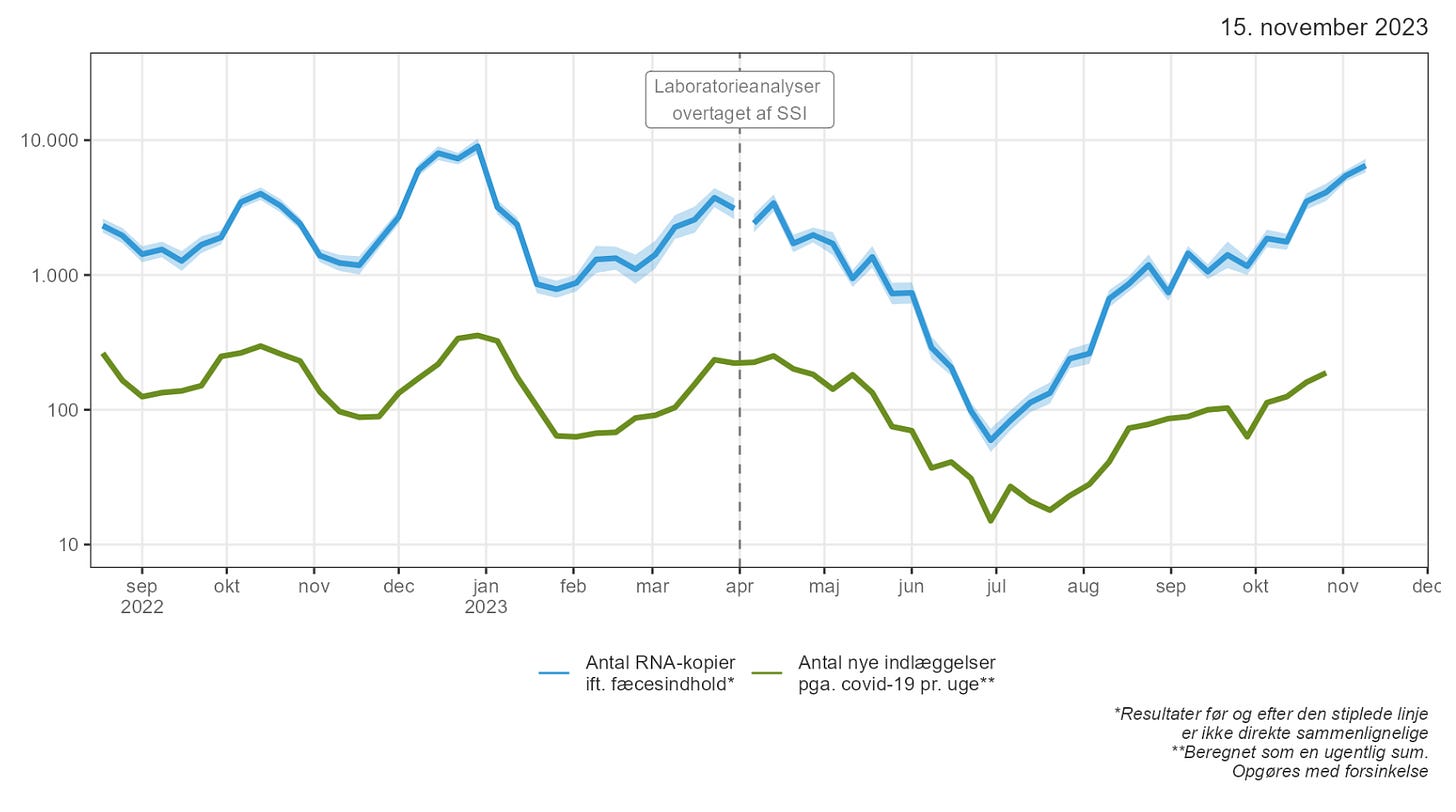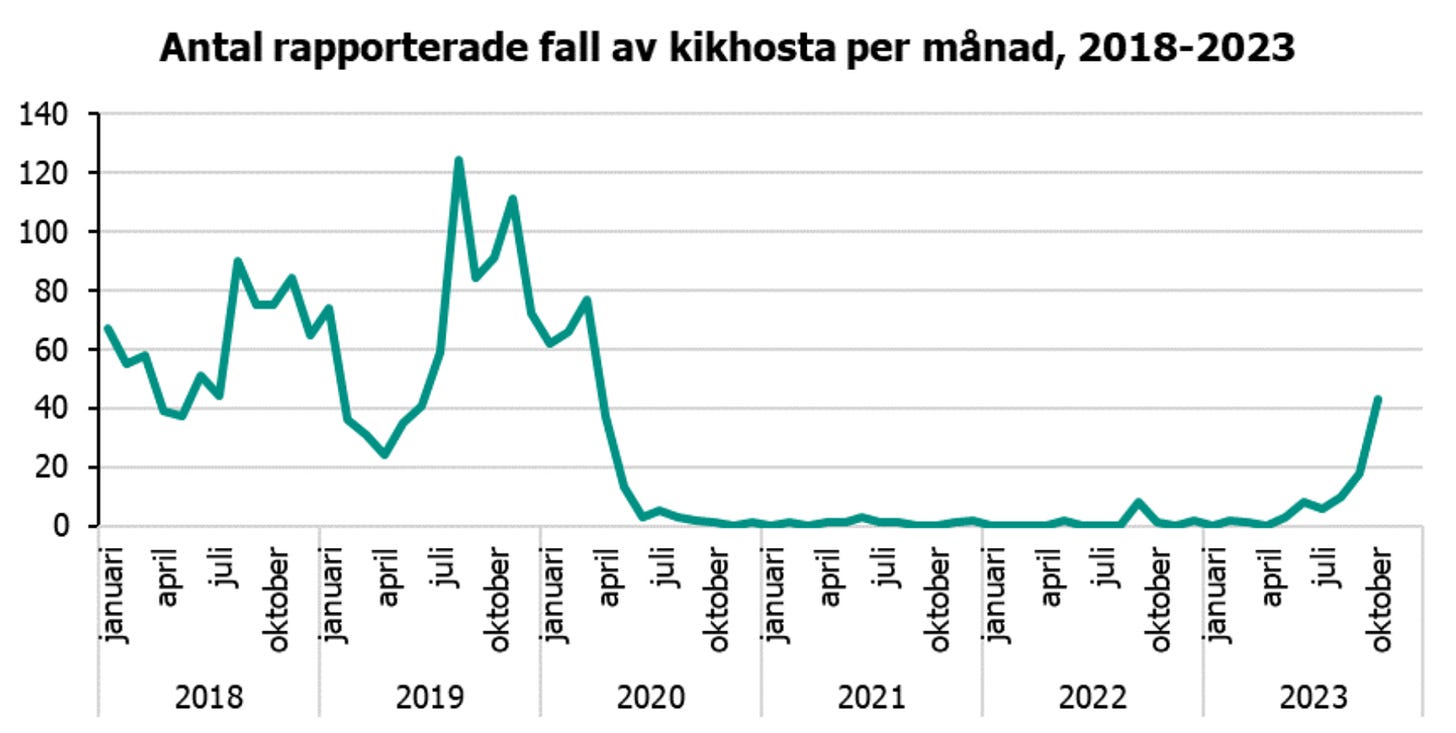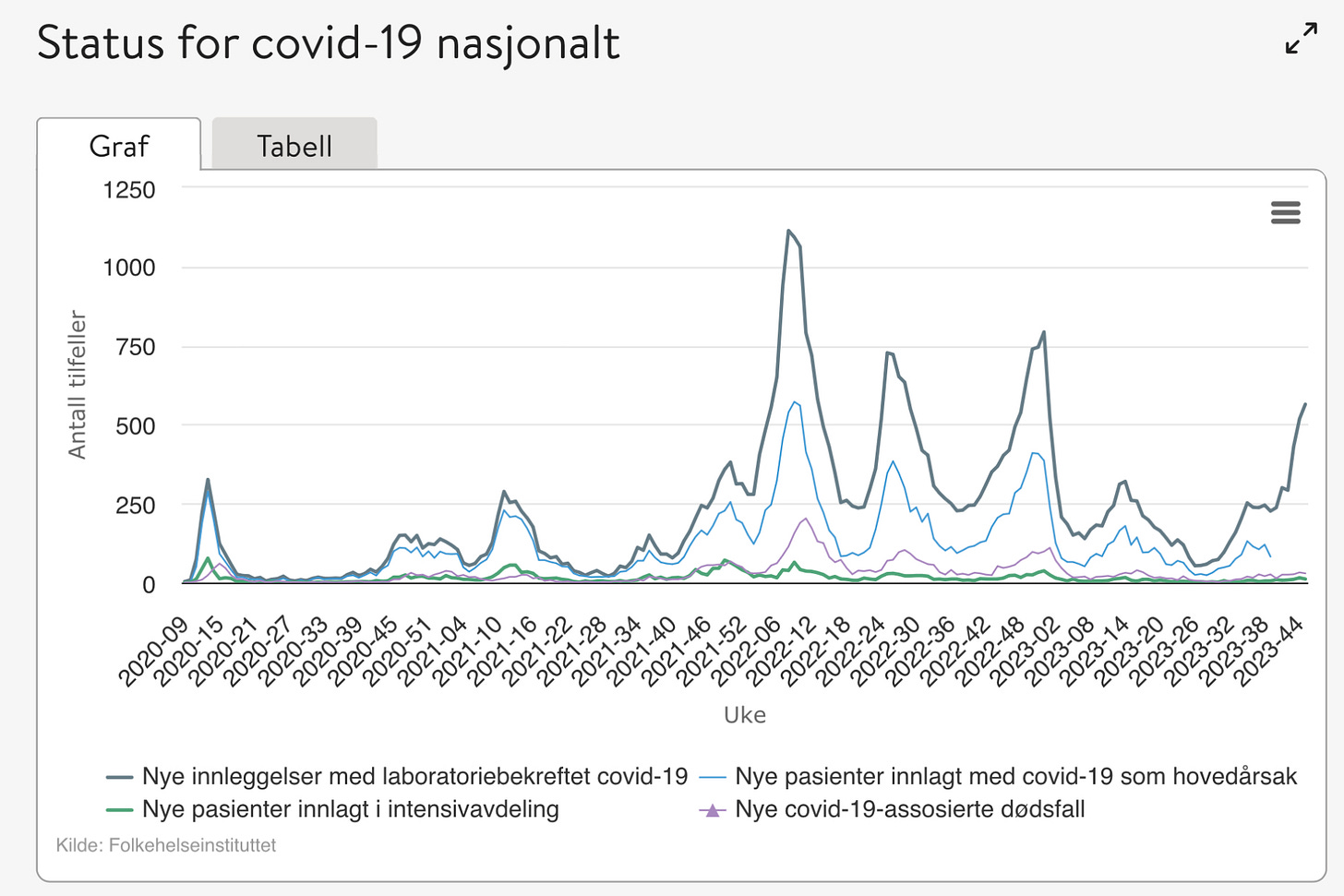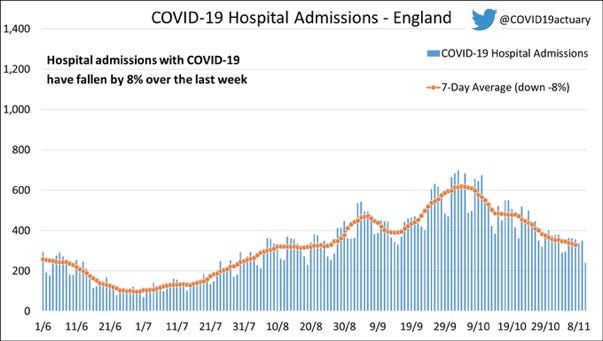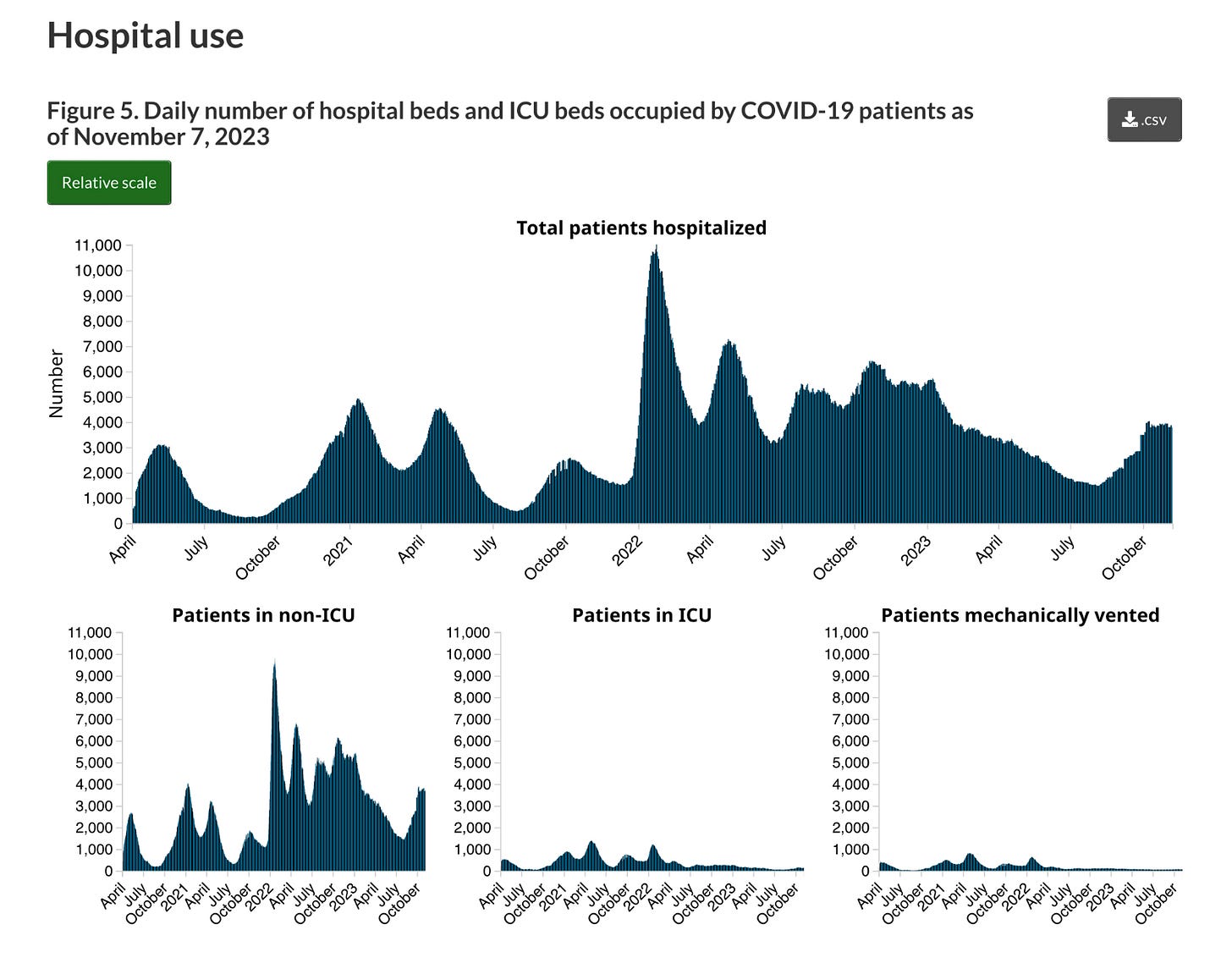The Evening Report - Nov 16
COVID wave sweeps across the Nordics. Finland tries to stop illegal migration.
🍃Environment & Energy⚡️
🇪🇺
There was a small decline in greenhouse gas emissions in Europe in the second quarter of this year. According to the EU statistics agency EuroStat, there were 821 million tonnes of CO2 emissions in the 2nd quarter, equaling a year-over-year reduction of 5.3%.
The biggest drop by sector was in energy production, specifically electricity and gas, where emissions fell by 22%. Europe’s manufacturing industry produced the most emissions (23.5%) followed by households (17.9%).
Looking at it by country, EuroStat says 21 EU countries saw their greenhouse gas emissions decrease while they rose in the remaining six. They are Malta (+7.7%), Latvia (+4.5%), Ireland (+3.6%), Lithuania (+3%), Cyprus (+1.7%), and Croatia (+1%).
On the other hand, the largest emission reductions were in Bulgaria (-23.7%), Estonia (-23.1%) and the Netherlands (-10.3%).
🇩🇰
Copenhagen broke a rain record on Thursday. Since midnight 45.8 millimeters of rain has come down in Denmark’s capital making it the single rainiest day since records began to be kept in 1874.
It isn’t just Copenhagen, Denmark is getting closer to having 2023 be the rainiest year on record. So far this year, there have been 843 millimeters of rainfall nationally. The record stands at 905 millimeters set in 1999 and then matched again in 2019. Considering Denmark suffered a weeks-long drought in May and June without a single drop of rain it is a testimony to how wet the year has been since.
Regionally, four municipalities have seen over 1,000 millimeters of rain so far this year. The wettest of them all is Billund, which has recorded a whopping 1,080 millimeters of rain. Vejle, Varde, and Vejen municipalities are the other three.
-
Very little true nature remains in Denmark, matter of fact just 4.6% of the country’s forests remain untouched. But the Nature Foundation is looking to change that. It has bought 50 hectares of forest in Kraruplund with some help from Varde Kommune with the goal of preserving the forest as is.
Chair of the Varde Kommune Committee for Planning and Engineering Preben Friis-Hauge says the nature area is one of the few original deciduous forests left in Denmark.
"We have adopted an ambitious nature policy in Varde Municipality, where we undertake to support the spread of more wild nature for the benefit of biodiversity. With this initiative, we strengthen the plant and animal life and at the same time ensure that everyone interested can get up close to a beautiful natural area.”
🇩🇪
Courts in Germany have dealt a major blow to the German government’s plans to tackle climate change. The Federal Constitutional Court ruled the government cannot shift €60 billion from funds earmarked for the COVID pandemic to another fund where it would used to pay for its green agenda. The court challenge was filed by the main opposition party.
The crux of the issue is that in Germany by law annual net new debt is strictly limited with the only exceptions being if the country was responding to a major natural disaster and other exceptional emergencies. In this case, the COVID pandemic was such an emergency with parliament suspending the debt rules for three years in order to fight the pandemic. The German government has since tried to dip into the monies borrowed to fight COVID and move them over to fund the battle against climate change.
Christian Democrat Union lawmaker Helge Braun, who chairs the lower house of parliament’s budget committee, hailed the court decision in a post on social media.
“Today, the Federal Constitutional Court saved the debt brake and thus made an important contribution to intergenerational financial justice. This has made it clear that the government’s policy of ostensibly fulfilling the debt brake in the federal budget, but booking large amounts of additional debt into the past through illusory shadow budgets, is a breach of the constitution.”
🇬🇧
The British government is trying to throw Europe’s beleaguered wind energy industry a lifeline. It is increasing price guarantees for the purchase of generated wind power by 66% and introducing financial incentives for projects that are more sustainable.
The government is also making offshore wind energy funding a stand-alone funding pot to “ensure healthy competition” among proposed projects.
Not done there, the British Government has also increased bid prices for geothermal, solar, and tidal power projects.
The United Kingdom has set a goal of having offshore wind energy produce 50 Gigawatts of power annually by 2030.
🇮🇱
Pressure on global LNG supply has been eased somewhat with the news that Israel has allowed the massive Tamar gas fields to resume production. Israel had ordered production shut down when the bloody conflict with Hamas began.
This will mean gas will once again flow to Egypt and Jordan while also easing pressure on gas markets in the European Union.
🦠COVID🦠
🇩🇰
COVID activity across Denmark continues to increase. The latest wastewater surveillance results from last week (blue line) show another 27% growth in COVID activity compared to the week prior. The Statens Serum Institute says over the last three weeks coronavirus activity as detected in wastewater testing has shown a “strong increase.”
COVID hospitalizations (green line) also continue to rise.
As is the case elsewhere, it is the elderly and most vulnerable who are in harm’s way in Denmark. But infants under two years old are also getting hit pretty hard.
Across Denmark between five to 10 lives are being lost to the virus every day.
-
Region Syddanmark is seeing a sharp drop in demand for COVID and influenza vaccinations after a very busy first eight weeks in the fall inoculation campaign. As of November 30, the region will close its vaccination centers in Aabenraa, Svendborg, Ribe, and Vejle. It says vaccination appointments can be made at all three sites up until the end of November. Three other vaccination sites in Sønderborg, Kolding, and Esbjerg will close on December 22, and they will not reopen in the new year.
From January 2nd until the vaccination campaign officially ends on January 15 the only places to get COVID and influenza vaccinations will be at pharmacies around Southern Denmark and at the lone remaining vaccination center in Odense.
Region Southern Denmark CEO Kurt Espersen:
“Thousands of southern Danes have already been vaccinated, and thousands more have booked a vaccination time in the coming weeks. However, this also means that the interest in booking appointments at our vaccination centers is falling sharply throughout most of the region. Since you can be vaccinated at pharmacies in all 22 municipalities until January 15, 2024, it does not make sense to keep the large vaccination centers open into the new year.”
So far, the region says almost half a million inoculations have been administered of either the COVID vaccine or flu shot. Among those eligible across the region there is a 64% uptake for a COVID booster and 66% have had an influenza vaccination. Among vulnerable seniors in care, the vaccination rate is 85%. The region says some 50,000 people have booked a vaccination appointment during the last few weeks of November.
-
A new Danish study has found the newly formulated variant-specific COVID vaccines given as a booster dose in the fall and winter inoculation campaign dramatically reduces the risk of hospitalization. The study by Denmark’s Statens Serum Institute found that people who have been boosted so far this fall have a 75% reduced risk of suffering a severe infection resulting in hospitalization.
Study Author and Institute Epidemiologist Christian Holm Hansen:
“It is a reassuring result, which indicates that the new vaccines work effectively against the SARS-CoV-2 variants that abound at the moment."
Hansen says the study took advantage of Denmark’s robust data registries to be able to track and contrast infection-related hospitalizations between those who had been boosted and those who hadn’t.
“This means that we can always see who has been vaccinated and when. We can also quickly get an overview of who has been hospitalized and with what. It is quite special that you have such good data on the population of an entire country it is not something you have very many other places in the world. Thus, we are also in a position to investigate the protective effect of the vaccines very quickly after the start of the vaccine rollout.”
You can find the full study HERE.
🇸🇪
COVID hospitalizations in Sweden (1,326) continue to surge upward (+175) while the number of infected people requiring intensive care (33) also creeps upward (+4).
-
Sweden is seeing a sharp increase in whooping cough infections. In Sweden, the COVID pandemic all but wiped out whooping cough with a mere 11 cases reported in 2021 and just 13 the following year. The Swedish Public Health Agency says 91 confirmed infections have been seen so far this year with the bulk of them occurring since October.
State Epidemiologist Magnus Gisslén:
“The risks of complications and the need for hospital care are greatest among the youngest infants who have not yet been vaccinated. It is therefore important that all children are vaccinated according to the child vaccination programme, and also that pregnant women also get vaccinated so that their child receives protection right from birth.”
In Sweden, vaccination against whooping cough is recommended for children from the age of three months and for pregnant women after the 16th week of pregnancy.
“How further developments will go cannot be predicted. But in addition to vaccination, there are several measures to reduce the risk of whooping cough among infants. For example, you should keep young children from interacting with anyone outside the family who has cold or flu symptoms.”
The health agency also recommends regular hand washing to try and keep the virus at bay.
🇳🇴
Norway continues to grapple with a big COVID infection wave. The Norwegian Institute of Public Health says COVID infection activity is “in full swing and is still increasing.” The institute is urging seniors and those in high-risk groups to get vaccinated against COVID and influenza as soon as possible. It also warns municipalities to brace for an influx of coronavirus patients in their hospitals. With COVID infection numbers rising the health agency is also concerned about the imminent arrival of the usual influenza and RS virus infection waves. So far, neither epidemic is underway. But the institute clearly remembers the difficult situation of last winter when all three waves hit almost simultaneously.
The NIPH says there was a 9% increase in COVID hospitalizations last week, with over 500 new admissions, which has built on top of a steady increase over the last several weeks. Intensive care admissions are much lower with just 11 last week.
Infection-related deaths are described as being stable with another 29 lives lost last week.
The NIPH says the EG.5.1 variant is driving the current infection wave but there are also slightly increasing numbers of BA.2.86 cases.
While the institute says the influenza wave has yet to take off, the number of flu-related hospitalizations jumped from 28 to 51 from week to week.
To add to the potpourri of respiratory viruses swirling around, the NIPH says it is seeing an increase in whooping cough cases especially among those 15 to 19 years old along with some small outbreaks among young children.
Uptake for influenza vaccinations has hit 52% among vulnerable seniors but just 5% of young children have had a flu shot. For COVID boosters far fewer seniors have opted to get vaccinated with uptake among those over 65 being a mere 37%.
🇫🇮
The Finnish Institute for Health is trying to dig its way out of a messy rollout of its fall vaccination campaign. The inoculation effort began too late and was broadsided by surging demand as a COVID wave swept across the country. Disgruntled seniors have been giving healthcare workers an earful and in some cases throwing temper tantrums when they show up without an appointment and cannot get vaccinated.
The institute is trying to reassure everyone that vaccine supply can cover the demand and all that is needed now is a little patience. It says more vaccine doses have been distributed to the various regions from the central warehouse. Next week another 129,000 doses of the Pfizer/BionNTech vaccine will arrive along with shipments of the newly approved Novavax vaccine.
Health Institute Leading Expert Mia Kontio:
“It seems that the popularity of the booster doses is higher than it was a year ago. This is positive. With the coming of winter, coronavirus, like other respiratory viruses, is circulating more, so it is important that the elderly and those in risk groups receive the vaccines recommended for them. The new booster dose aims to reduce severe infections, hospitalizations, and COVID deaths.”
Doctor Anniina Virkku says after a rocky start Finland’s fall vaccination campaign is getting back on track.
"Most of the mass vaccinations have started. Despite the long queues and backlog of appointments, vaccinations are already progressing well in many areas, and efforts have been made to increase vaccination times.”
In Finland, seniors over 65, high-risk and vulnerable populations, and those who are immunocompromised are recommended to get a COVID booster dose and an influenza vaccination
-
There seems to be a bit of a pandemic hangover in Finland when it comes to meeting people in person. Statistics Finland says that last year 45% of people over 16 met with their friends in person at least once a week. That is a 20% drop from 2006. Men were more likely to meet friends in person than women. There was also a pretty big swing looking at it by age with young people more likely to meet friends in person while people over 74 were much less likely to do so.
Technology may be playing a role with the statistics agency saying there has been a marked increase in people meeting remotely. Among 16-year-olds 71% had contacted friends by phone or online at least once a week.
🇬🇧
COVID hospitalizations in England continue to fall according to the COVID Actuaries Response Group. Infection-related admissions were down by 8% week to week. There were a few regions that had some small increases but the overall number of coronavirus patients continues to decrease. Intensive care occupancy also dropped by 15%.
The reinfection rage, or R0, has crept up slightly to 0.95. Anything over 1 indicates degrees of a spreading epidemic.
🇨🇦
The Public Health Agency of Canada reports that COVID has claimed another 129 lives in the last week pushing the total to date virus death toll to 55,107 lives lost.
COVID hospitalizations have declined slightly across Canada. In the week ending November 7, the total number of beds in use by a coronavirus infected patient dropped by 149 to 3,789. General admissions saw the bulk of the declines with 163 fewer patients but there were still 3,646 beds in use. The number of infected people requiring intensive care went the opposite way climbing slightly to 143, which is 14 more than the week before. There were four fewer severely infected people requiring a ventilator with 61 that week.
The national seven day positivity percentage is 17.7%.
🇺🇦/ 🇷🇺 War
🇪🇺🇩🇰/ 🇷🇺
The European Union’s price cap on Russian oil has proven to be pretty ineffective and now it is looking for ways to plug the holes, and Denmark could play a key role. The Financial Times is reporting that Denmark could be tasked with stopping, inspecting, and potentially blocking Russian oil tankers sailing through its waters. Roughly 60% of Russia’s total seaborne oil exports are shipped through the Baltic Sea and have to transit through Danish waters en route to international markets.
The inspections would be done under the excuse of an environmental concern with some of the aging tankers Russia has in its shadow fleet being uninsured and in somewhat suspect condition.
Last December, the European Union, the G7, and Australia, jointly imposed a $60 price cap on Russian oil as a sanction against the country for its invasion of Ukraine. But Russian oil has traded well above the cap for most of the past year. Part of this is due to a global rally in oil prices. But Russia has also become better at dodging Western sanctions by reorienting its oil trade to non-sanctioning countries. It has also put together a massive shadow fleet of oil tankers, some using Western insurance, either operating without a transponder or manipulating transponder signals to show their location as being somewhere else. With the help of ship-to-ship transfers at sea this shadow fleet ensures Russian oil exports continue to circumvent Western sanctions.
🇫🇮/ 🇷🇺
The Finnish government announced on Thursday that it will close four border checkpoints across southeastern Finland as of midnight Friday in an effort to tackle a surge in illegal immigration. The four border control stations being closed are Vaalimaa, Nuijamaa, Imatra, and Niirala. All asylum applications will also only be processed at two border control stations located at the Vartius and Salla crossings.
Prime Minister Petteri Orpo:
“We have acted decisively and swiftly so that the situation at the eastern border would not escalate. During the previous parliamentary term, amendments were made to the Border Guard Act precisely for such situations. These tools have now been used.”
The government also notes in announcing these new measures that “There are indications that foreign authorities or other actors have played a role in facilitating the entry into Finland of persons who have crossed the border illegally.”
In the just the last 48 hours the Finnish Birder guard has recorded the arrival of 80 more undocumented migrants arriving from Russia.
Finnish Border Guard Head of International Affairs Matti Pitkäniitty says that the migrants come from countries like Iraq, Yemen, and Syria, and they are being helped by Russian authorities. He says traditionally Russian officials wouldn’t let undocumented migrants travel through Russia to the Finnish border. But that has now changed.
“Finland is facing a phenomena where third-country nationals arrive to our land border crossing points without required travel documents, Schengen visa for example, and ask for asylum. In a global scale numbers are still quite low, but they are growing fast.”
Finnish President Sauli Niinistö said on Wednesday that the flow of asylum seekers from Russia to Finland's eastern border may have been triggered by the recently signed defense cooperation agreement between Finland and the United States.
Russia has weaponized immigration amassing migrants along Poland’s border with Belarus and is encouraging illegal crossings. While Finland is working to secure its border with Russia by building a 200-kilometer-long fence that still leaves most of its 1,340-kilometer-long border largely unsecured.
🇫🇮 🇪🇪/ 🇨🇳
Both Finland and Estonia have sent China a formal legal notice requesting its cooperation in the investigation of the damaged Balticconnector pipeline and two nearby data cables.
Finnish investigators have linked a huge anchor found on the sea floor near the damaged section of the pipeline to a Chinese registered cargo vessel called Newnew Polar Bear. Its crew refused to cooperate with investigators. After entering Russian waters the ship seems to have also turned off its location transponder with no new location reading for 17 days now.
🇫🇮
Next week, Finland will lead a major joint naval exercise alongside other NATO allies and naval forces from neighbouring Sweden. This will mark the first major such exercise Finland has led since joining NATO. Operation ’Freezing Winds’ will begin November 20 and end December 1. About 4,000 troops will take part along with 30 combat vessels, support craft, and transport ships. One major component of the exercise will be the detection of naval minefields.
🇳🇴
The major military build-up across Europe continues. Norway has announced a massive upgrade to its air defenses making the single largest investment in over three decades. The Norwegian government will spend 12.5 billion Norwegian kroner (about $1.5 billion Cdn) to purchase new short, medium, and long-range missile systems.
Norwegian Minister of Defense Bjørn Arild Gram says Norway’s continued strengthening of its military is a direct result of Russia’s invasion of Ukraine.
“The purchase is being made because we are at a turning point for security in Europe.”
Prime Minister, Jonas Gahr Støre says the move was also necessary because of the weapons packages Norway has sent to Ukraine.
“With this investment, the government is helping to strengthen our national preparedness, and we are replacing air defenses that have been donated to Ukraine as soon as possible.”
🇩🇪 🇺🇦
Germany will double its military aid to Ukraine as it increases spending to €8 billion by next year. German Defense Minister Boris Pistorius says the announcement is a “strong signal to Ukraine, showing we are not giving up on it.” The increase in military aid to Ukraine still has to be approved by the German parliament.
🇸🇪 🇺🇦
A slew of Western tanks donated to the Ukrainian Army seem to have met their match in massive Russian minefields. Swedish soldier Christopher Forsbäck told Radio Sweden there is an “unfathomable” number of Russian landmines strewn across the war zone in occupied sections of Ukraine. Forsbäck served in Ukraine fighting in the spring offensive and says the new western armour, including many donated Swedish CV-90s, hasn’t been as effective as hoped as even they can’t do much when they run up against a minefield.
Ukraine has more land mines than any other country on earth due largely to Russian defensive fortifications.
🇹🇷/ 🇸🇪
The Turkish parliament’s foreign affairs committee has extended debate on Sweden’s NATO application while providing no timeline for when it might be tabled for a vote in the parliament.
Turkey and Hungary remain the only two of the 31 NATO member nations that have yet to ratify Sweden’s NATO application. Sweden needs a clean sweep with a yes from all 31 nations in order to join the military alliance.
🇪🇪
The Prime Minister of Estonia is throwing her hat in the ring for the top job at NATO. Kaja Kallas, an outspoken critic of Russia and strong advocate for supporting Ukraine, told attendees at a Politico defense conference that she is interested in becoming the next Secretary-General of NATO.
Former Norwegian Prime Minister Jens Stoltenberg has been NATO Secretary General since 2014. Last summer he somewhat reluctantly accepted his fourth extension in the position.
🇷🇺
Russia has charged 523 foreign nationals for fighting as mercenaries in Ukraine. The state-owned Russian news agency TASS cited the Russian Investigative Committee as making the announcement. The people charged come from Denmark, France, Belgium, Great Britain, and Finland, among other countries. Everyone was charged in absentia as none of them are in Russia and are now unlikely to ever travel there.




